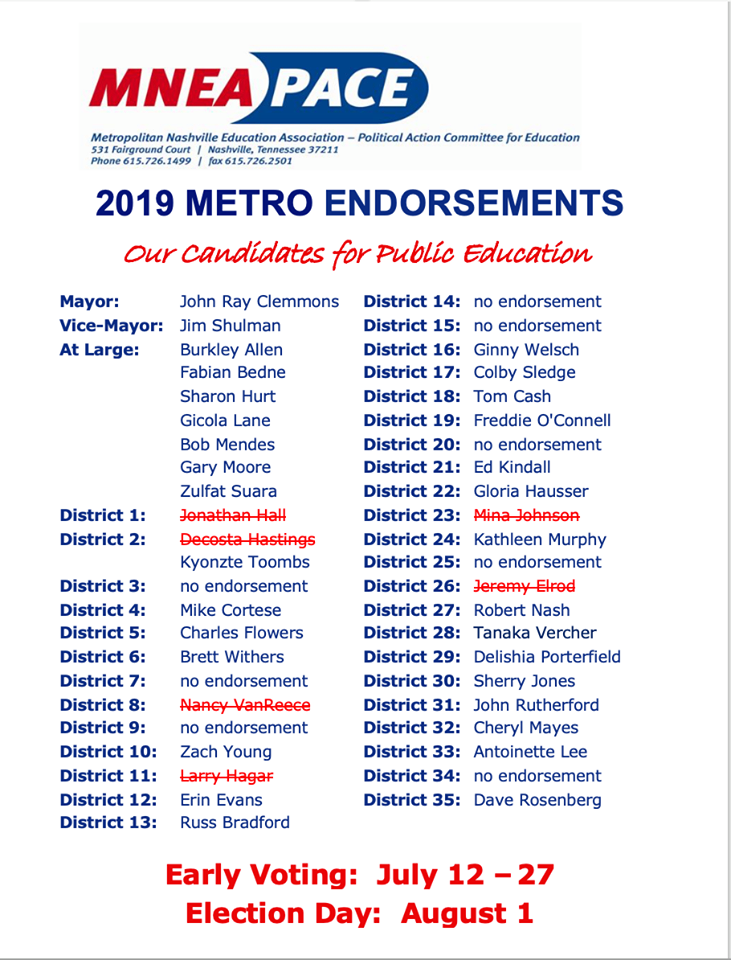Roughly one month after Governor Bill Lee signed his Education Savings Account voucher scheme into law, a North Carolina-based private school announced it is expanding operations to Nashville. Perhaps not surprisingly, tuition at the school is similar to the amount available to families in Nashville and Memphis under the ESA program.
The school, Thales Academy, is operated by the CEO of a commercial kitchen ventilation company. Bob Luddy is also a top GOP donor in North Carolina.
Here’s Luddy on how great his schools are:
“We get results. If you look consistently over a period of time, kindergarten students come in, they can barely walk in the door, they can barely sit down, and then you see them progress as they learn sounds, and they learn to decode. By the time they progress into the 3rd or 4th grade they’re doing very sophisticated work, which is going to prepare them to be excellent students in the long term,” Luddy says in a video on the Thales Academy website.
And here’s more on accreditation straight from the school’s website:
The accreditation process does not align with Thales Academy’s mission and would prevent Thales from maintaining our standard of the highest quality education.
Thales and Luddy are not new to Tennessee. In fact, in 2015, voucher advocate Lee Barfield paid for a private plane to take former Nashville Mayor Karl Dean and then-House Speaker Beth Harwell to North Carolina to visit the Thales schools. Like Bill Lee, Barfield is a long-time supporter of Betsy DeVos’s American Federation for Children and even served on the group’s Board of Directors.
Those in the GOP cozying up to Luddy should beware, though, he’s known for expressing his disappointment where it hurts politicians the most: campaign contributions.
Here’s how he treated the House GOP in North Carolina:
A major conservative donor’s decision this week to divert a planned $25,000 contribution away from state House Republicans highlights an increasingly bitter divide within the party over tax policy and government spending.
Raleigh businessman Bob Luddy, who chairs the board of the conservative Civitas Institute think tank and is an influential financial supporter of conservative candidates, emailed a sharp critique of the House budget to House Republicans, who are in the majority.
Luddy complained that the budget advancing to a major vote on Thursday does not include new tax cuts and extends tax breaks for specific industries. He called the spending plan too “liberal” and said he’s decided to withold his planned, annual donation to the House Republicans’ campaign committee.
Luddy instead directed his money to Americans for Prosperity and then issued this sharp rebuke to those who had taken his money in the past but were not doing his bidding:
But Luddy says the state shouldn’t prop up the solar industry. “These guys couldn’t exist without government subsidies, and those subsidies have to come from every working taxpayer who are capable of creating way more jobs than the solar industry could ever create,” he said.
Here’s a guy who plans on using public money to fund his private school scheme and he’s decrying the use of public funds to support an industry he simply doesn’t like. Perhaps if public money shouldn’t be used to “prop up the solar industry” it also shouldn’t be used to prop up Luddy’s Thales Academy.
Those who warned that passage of vouchers would lead to “pop-up” private schools have already been proven right. Thales Academy and Bob Luddy were invited into Tennessee by Bill Lee and friends and are now perched like hungry vultures ready to suck funds from Nashville’s public schools.

For more on education politics and policy in Tennessee, follow @TNEdReport
Your support makes reporting education news possible.
$1, $3, or $5 makes a difference.








